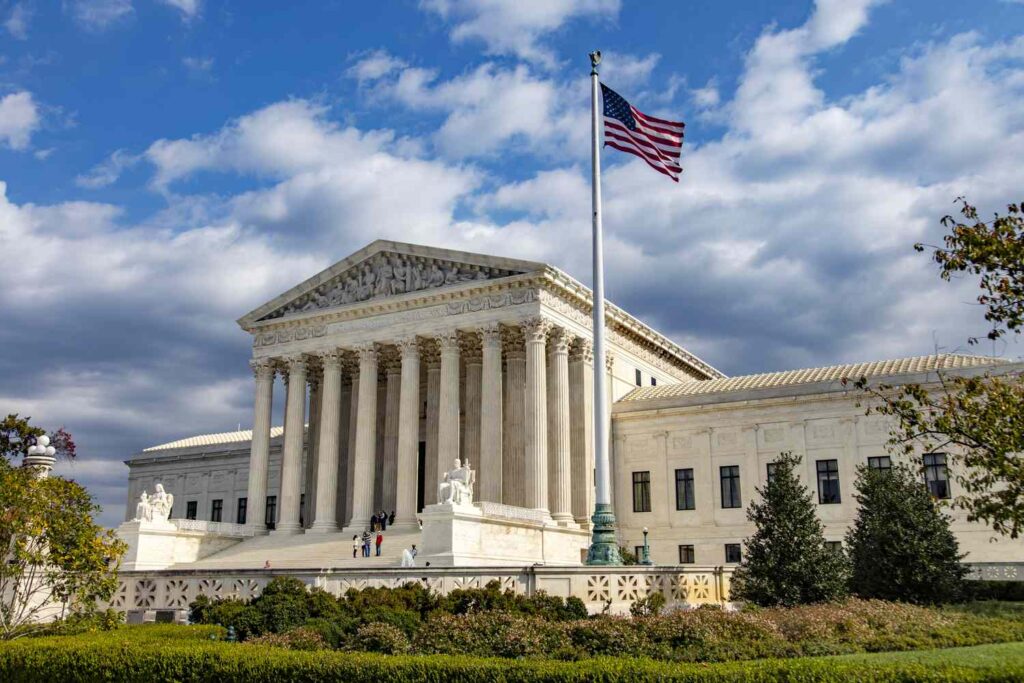The United States Supreme Court ruled that Due Process required a timely forfeiture hearing, but the Constitution did not require a separate preliminary hearing to determine whether the police could retain the vehicle pending the forfeiture hearing. Both the Concurrence and Dissenting Opinions provide a path forward on civil forfeiture practices that “can be squared with the Constitution’s promise of due process.” See Culley v. Marshall, 2024 Lexis 1979, _ S.Ct. _, 2024 WL 2061136 (Decided 6-3, May 9 th , 2024).
The Factual Background: Culley v. Marshall
For more than a year, Alabama deprived Halima Culley and Lena Sutton of their vehicles, without any judicial oversight: Sutton had loaned her vehicle to a friend, and police seized it when arresting him for trafficking methamphetamine; Culley bought her vehicle for her son to use at college, and police seized it when arresting him for possessing marijuana.
Neither Culley nor Sutton had done anything wrong. Both were “innocent owners.” Neither knew anything about any of alleged illegal activity.
The local police departments—”who stood to keep the cars upon forfeiture, or any money they might generate”—refused repeated requests from Culley and Sutton to release the vehicles.
“The consequences were devastating.” For Sutton, her vehicle was seized for fourteen months without a hearing. Sutton lost work, fell behind with her bills and missed mental health appointments. A simple “innocent owner” hearing may have ordered release of the vehicle immediately. See Brief for Petitioners.
Petitioner’s Argument
The United States Courts of Appeals and state high courts are split. “The Second, Fifth, Seventh, and Eighth Circuits and the Minnesota Supreme Court apply Mathews’ three-factor inquiry, but the Eleventh Circuit and Illinois Supreme Court apply Barker’s four-factor speedy trial test.” See Reply Brief for Petitioners.
Alabama’s Response
Alabama argued that Culley and Sutton’s constitutional claim was precluded by Alabama court forfeiture proceedings; that their vehicles had already been returned to them and they brought about any delay in the forfeiture proceedings. See Brief for Respondents.
Petitioner’s Reply
In reply, Culley and Sutton argued that Alabama’s argument “…that vehicle owners can post a bond for double the value of their vehicles. But that backbreaking burden only underscores the importance of the split. The idea that the government can cure a property deprivation by demanding twice the value in other property is nonsensical.” See Reply Brief for Petitioners.
“The question is not whether ‘the initial seizure’ was lawful, whether ‘due process required a predetention hearing,’ One 1998 GMC, 960 N.E.2d at 1080, or whether the final merits hearing comported with due process. Instead, as Alabama recognizes, the petition presents a discrete methodological question: whether to apply Mathews or Barker when deciding whether (and when) due process requires a retention hearing in civil forfeiture actions.”
“Mathews governs whether (and when) due process requires a retention hearing in civil forfeiture actions.”
“Mathews applies when ‘the government seeks to maintain possession of property before a final judgment is rendered.’ Krimstock, 306 F.3d at 60. Barker, by contrast, applies when there are ‘delays in rendering final judgment.'”
Culley v. Marshall May 9 th , 2024 Opinion
The United States Supreme Court released its decision on May 9 th , 2024 in a 6-3 decision. The opinion also had a concurrence and dissent.
Justice Kavanaugh delivered the opinion of the court and held, that when police seize and then seek civil forfeiture of a car that was used to commit a drug offense that the Constitution “…requires a timely hearing; the Constitution does not also require a separate preliminary hearing.”
The Court rejected the Petitioners’ argument that a preliminary hearing is constitutionally necessary to determine whether the government could retain seized personal property pending the ultimate forfeiture hearing. The Petitioners sought an earlier version of the ultimate forfeiture hearing. The government pushed back that requiring a “hearing before a hearing” in every case would interfere with “important law enforcement activities that must occur after the seizure and before the forfeiture hearing—including identifying and contacting potential claimants of the property; coordinating forfeiture proceedings with related criminal investigations and prosecutions; and ensuring that property is not removed, destroyed, or put to illegal use before the forfeiture hearing.”
The court stated that it did not need to “reweigh the competing due process arguments advanced by the parties” because of United States v. $8,850 and United States v. Von Neumann had already resolved that issue. “After a state seizes and seeks civil forfeiture of personal property, due process requires a timely hearing but does not require a separate preliminary hearing.”
The Court repeated its prior holding that “timeliness in civil forfeiture cases must be assessed by ‘analogizing to a defendant’s right to a speedy trial’ and considering four factors: the length of the delay, the reason for the delay, whether the property owner asserted his rights, and whether the delay was prejudicial.”
Further, Justice Kavanaugh stated “To balance the interests of the government and individuals in civil forfeiture cases involving personal property, the States and Congress have adopted a wide variety of approaches. For example, some States require that the forfeiture hearing occur within a fixed period of time. Others require a jury trial. Still others condition civil forfeiture on a successful criminal prosecution. And a few now require preliminary hearings. Our decision today does not preclude this legislatively prescribed innovations. Rather, our decision simply addresses the baseline protection of the Due Process Clause.”
Justice Gorsuch, joined by Justice Thomas, wrote in the concurrence that “…civil forfeiture has become a booming business. In 2018, federal forfeitures alone brought in $2.5 billion. Meanwhile, according to some reports, these days ‘up to 80% of civil forfeitures are not accompanied by a criminal conviction.'”
Justice Gorsuch provided a historical review of the seizure of vessels and other personal property. His last paragraph asked that in future cases, “I hope we might begin the task of assessing how well the profound changes in civil forfeiture practices we have witnessed in recent decades comport with the Constitution’s enduring guarantee that ‘no person shall be deprived of life, liberty, or property, without due process of law.'”
Justice Sotomayor wrote in the dissent that “Civil forfeiture occupies a murky space between criminal forfeiture and ordinary government deprivations of property.” “Civil forfeiture is a hybrid, where prosecutors proceed against property (in rem) they believe is connected to a crime, even when the owner is innocent.”
“The Federal Government, States, and localities set their own rules for civil forfeiture, subject only to the limits of the Due Process Clause. This lack of standardized procedural safeguards makes civil forfeiture vulnerable to abuse.”
“The majority’s holding relates only to retention hearings. It does not foreclose other potential due process challenges to civil forfeiture proceedings. People who have their property seized by police remain free to challenge other abuses in the civil forfeiture system. For instance, such claimants could challenge notice of a forfeiture posted only in a newspaper, the lack of a neutral adjudicator at an initial hearing, or the standard of proof necessary to seize a car. Lower courts remain free to apply Mathews to those claims. Due process also still ‘requires a timely post-seizure forfeiture hearing.'”
“The abuses of many civil forfeiture systems are well documented. I commend States or localities that have adopted retention hearings as a way of guarding against those abuses. Other States and localities should not view today’s decision as precluding them from following suit and adopting similar measures.”
“The majority today holds that due process never requires the minimal check of a retention hearing before a police officer deprives an innocent owner of her car for months or years. Given the diverse schemes adopted by States, some with adequate safeguards and some without, the Court should have just answered the question presented. Instead, it announces a universal rule for all schemes without heeding the dictates of this Court’s due process precedents that require a scheme- specific analysis. Because I instead would have answered the question presented and left lower courts the flexibility to apply the appropriate test in these myriad circumstances, I respectfully dissent.”


Author
Mike Simkus
Attorney/Founder, FS CORPS